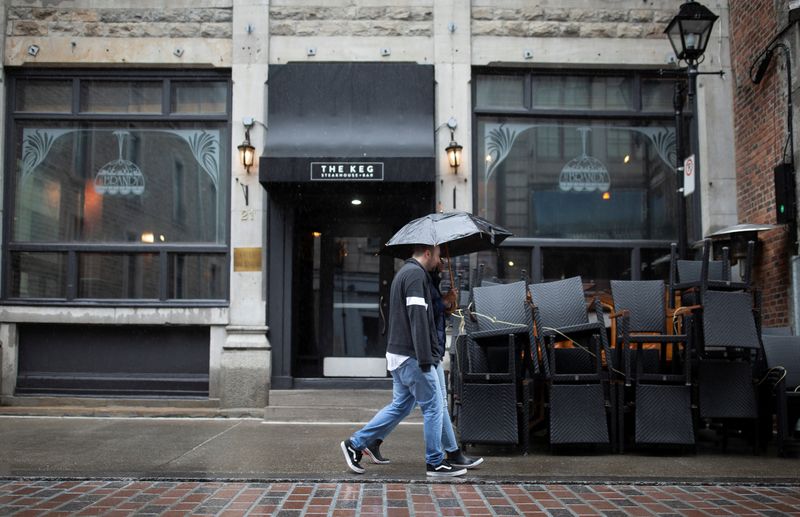By Steve Scherer and David Ljunggren
OTTAWA (Reuters) - Canada on Thursday launched a C$10 billion ($7.5 billion), three-year infrastructure plan it said would help the country create jobs and recover from the economic slump caused by the coronavirus pandemic.
"With smart, targeted investments, we can get people back on the job and grow the economy, while building a healthy, sustainable future for everyone," Prime Minister Justin Trudeau told reporters on Thursday.
The money will come from a C$35 billion pool already managed by Canada Infrastructure Bank (CIB), which critics complain has done little since it was set up by Trudeau's government in 2017.
Last week, Trudeau promised to support an economic recovery that would bring back the more than one million jobs lost during the crisis.
The new infrastructure plan would put 60,000 people to work, the prime minister said on Thursday. He also recommitted to fighting climate change by making investments in things like energy efficient building retrofits.
The CIB will seek to underpin private investment in infrastructure, and it will aim to make returns so that the bank can "invest and reinvest" going forward, said CIB Chairman Michael Sabia.
The money "will move out quickly", Sabia said, calling the plan "very real, very concrete".
The money will be divided up as follows:
* C$2.5 billion for clean power to support renewable generation and storage and to transmit clean electricity
* C$2 billion to connect approximately 750,000 homes and small businesses to broadband in under-served communities.
* C$2 billion to invest in large-scale building retrofits to increase energy efficiency
* C$1.5 billion for agriculture irrigation projects to help enhance production
* C$1.5 billion to accelerate the adoption of zero-emission buses and charging infrastructure
* C$500 million for project development and early construction works

($1=1.3288 Canadian dollars)